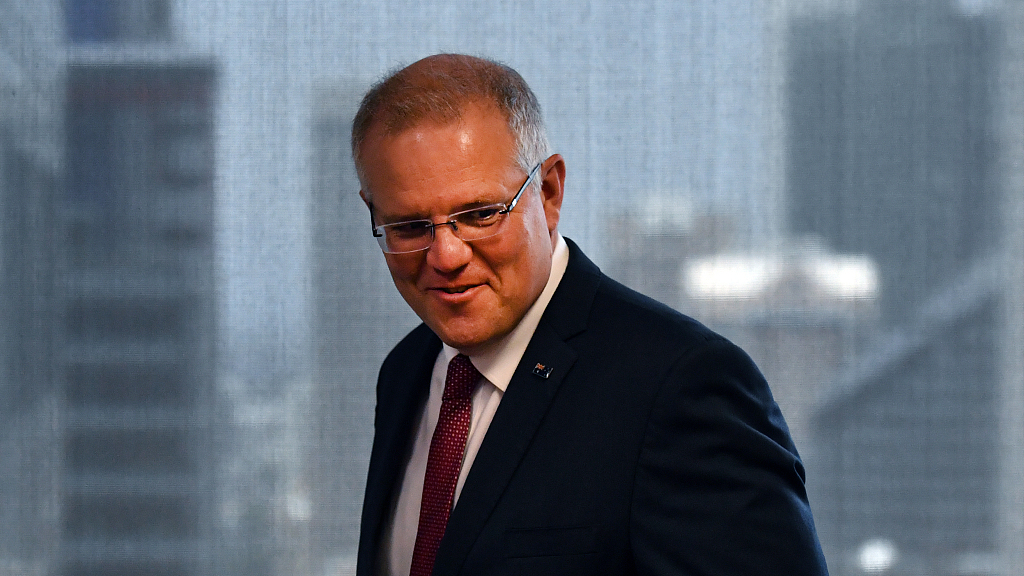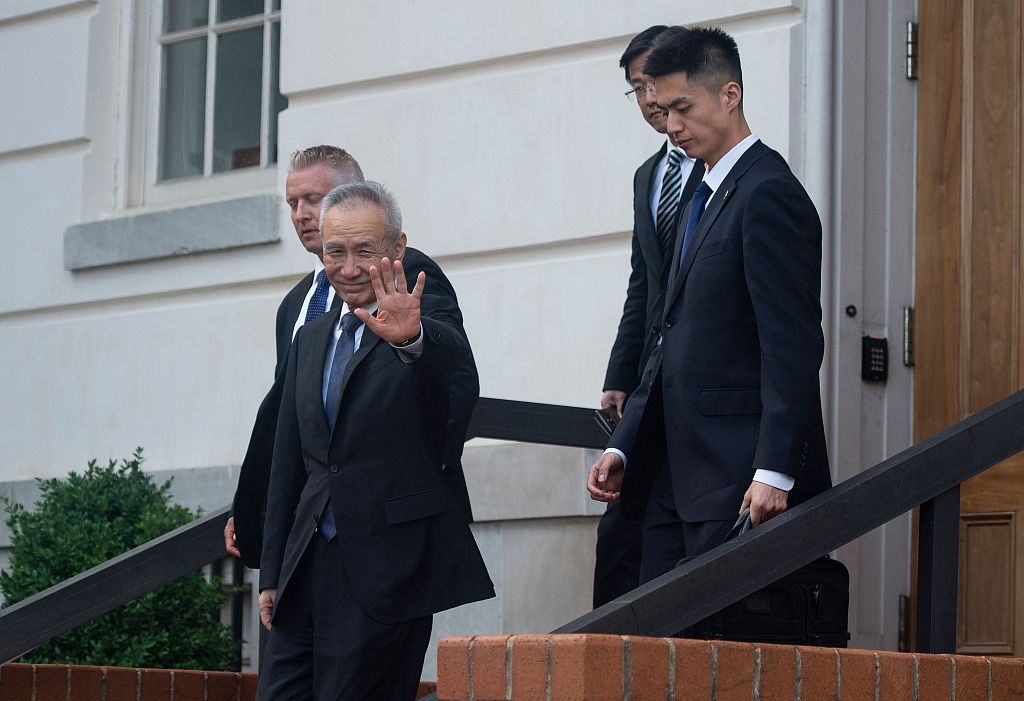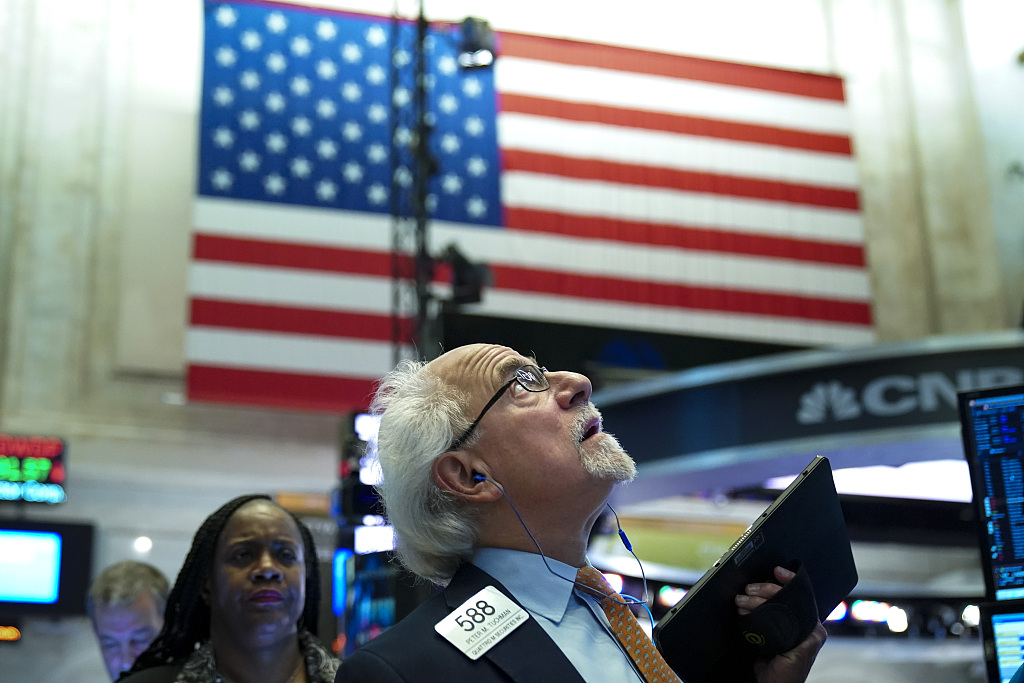

Editor's Note: Tom Fowdy is a British political and international relations analyst and a graduate of Durham and Oxford universities. He writes on topics pertaining to China, the DPRK, Britain, and the United States. The article reflects the author's opinion, and not necessarily the views of CGTN.
Australian Prime Minister Scott Morrison spoke out against rising tensions between China and the United States this week, warning of "collateral damage" from an accelerating trade war and great power competition.
Despite being a robust ally of the United States, Morrison stated explicitly that "It is in no one's interest in the Indo-Pacific to see an inevitably more competitive U.S.-China relationship become adversarial in character" and further spoke out against moves of "decoupling" – an idea which has gained increasing currency in Washington.
The comments come amid a tense G20 summit in Osaka, Japan, whereby Chinese President Xi Jinping and his U.S. counterpart Donald Trump are set to meet and discuss the trade war.
Australian PM’s comments should be an immediate wake-up call to every politician and analyst who has been an uncritical cheerleader for Trump’s trade war against Beijing.
Australia is not even a neutral party in the mix of things. Despite being a very pro-U.S. country, Canberra recognizes that its economic relationship with China is of fundamental value and that attempts to disrupt that will ultimately prove to be self-destructive.
Instead, as Morrison indicates, Australia’s foreign policy is centered upon not containing China, but upholding a multilateral approach to the Pacific which also requires the maintenance of open markets. On that note, it is not going to allow Washington to drag it into a Cold War confrontation.

Chinese Vice Premier Liu He leaves the Office of the United States Trade Representative after tariff negotiations in Washington, May 9, 2019. /VCG Photo
America's trade war against China has been, for the most part, a strictly unilateral initiative. You do not see any other countries or for that matter even any allies, joining in Trump's self-styled economic warfare which has included growing tariffs and an attempt to ban Chinese technology from the United States.
For the rest of the world, shutting out Beijing has largely been perceived as "cutting off one’s nose to spite their face." As the world's second largest economy and the largest trade partner of many countries, economic reason simply dictated that to follow through with Trump was in the interests of nobody.
Given this, a growing number of countries have warned sternly against a Cold War-style great power competition facilitated by Washington. The newest country to do so happens to be Australia.
For observers this may come as a surprise. Canberra was seen as one of America’s closest partners in calibrating a tougher approach to Beijing, and its ban of Huawei from the country’s 5G network came long before Washington’s crusade against the company.
Yet, it seems that even Australia as a staunch, pro-U.S. ally, has its lines and limits. With China's prominent role in the country's mining industry on the export of raw materials, a strong provider of foreign direct investment, a destination for tourists and its largest partner as a whole, Canberra recognizes that growing confrontation between the U.S. and China would be disastrous for it.

Traders and financial professionals work at the opening bell on the floor of the New York Stock Exchange (NYSE) in New York City, June 3, 2019. /VCG Photo
Despite its differences and reservations, Australia has never wanted to "contain" China or pursue a Cold War mentality. Instead, its foreign policy has been calibrated towards achieving balance and stability in the Pacific through multilateralism and market expansion, creating space for itself to preserve its interests as a regional power.
While this has involved strong security ties with the United States and differences with China in some areas, nevertheless, it has never involved shutting out Beijing in a confrontational, divisive and destabilizing way. Australia has thus grown increasingly concerned by the path the White House is going down.
Due to the interdependent and globalized nature of supply chains, Washington’s attempts to forcefully push China out of leading technology and other markets is infringing the interests of other countries. They are being dragged into a geopolitical conflict they do not want and being deprived of core economic interests against their will.
As a result, Scott Morrison has now made his strongest comments yet against the trade war. He states that Australia will "not stand still" as the crisis omitted by the White House escalates. This may be even a veiled warning that Canberra may even reconsider elements of its relationship with Washington if the administration continues to trample on its national interests.
Ultimately, this is a stark reminder that America is on its own in this trade conflict and when a push comes to a shove, other countries are not going to be taking sides with it. Washington should take careful notice of what its own allies are saying and row back accordingly.
(If you want to contribute and have specific expertise, please contact us at opinions@cgtn.com.)

Copyright © 2018 CGTN. Beijing ICP prepared NO.16065310-3
Copyright © 2018 CGTN. Beijing ICP prepared NO.16065310-3